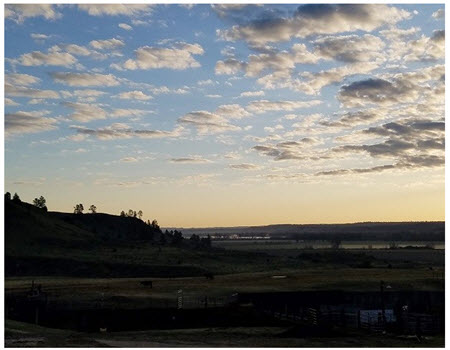WASHINGTON, May 9,
2016 - The ability to market food as local is valuable for small farms,
bakeries and butchers that often can’t compete with big companies, so USDA
needs to help sustain that edge, Agriculture Secretary Tom Vilsack told
reporters Friday.
Standing in a USDA parking lot Friday among temporary stalls selling pumpkin
bread, specialty sausages, vegetables and many other agricultural goods at the
Department’s first farmer’s market of the year, Vilsack reacted sharply to a
recent Tampa Bay Times
story
about non-local food being disguised and sold as local fare in Florida.
“It is a concern because the local and regional moniker is a value-added
proposition and so it’s important for us to look for ways to make sure that
people understand what it means in their particular locale,” Vilsack said.
And there may be a role USDA can play, he said.
“I think as this … industry matures and grows, there’s going to be the need for
standardization in terms of what it means (to be) local or regional,” Vilsack
said. “In the meantime, we’ve got process verification systems that could
potentially be used by some if they are interested in being able to verify
where and how something is produced.”
For ethanol, either Trump or Clinton will do just fine. The ethanol
industry can take a deep breath now that anti-RFS Sen. Ted Cruz is officially
out of the race to be the next president.
“We are more comfortable today because Ted Cruz isn’t going to be the
president … but look, both presidential candidates today support
the RFS, Congress continues to say that it’s important and let’s not
repeal it, let’s reform it,” Renewable Fuels Association President and CEO
Bob Dinneen told reporters Friday.
… but corn farmers aren’t relaxing. The National Corn Growers Association
says it’s still concerned about the threat of EPA reducing the ethanol mandate
and the farm group is equipping its members to fight back with a new
communications “toolkit.”
“Even before the ink was dry on the establishment of the Renewable Fuel
Standard legislation, NCGA, its state affiliates and members have worked
tirelessly to make it a success. Unfortunately, the Environmental Protection
Agency's final rule setting of the Renewable Volume Obligations last November,
raised serious concern about the agency's commitment to the RFS and the future
of the ethanol industry,” the corn group said in its latest newsletter.
The toolkits, designed to help corn farmers target lawmakers, businesses,
environmental groups and the public with pro-RFS messages in “a unified voice”
is being distributed now.

Daybreak after the Peterson Livestock branding- Custer, Montana….special thanks
to all that helped make this year’s branding a success. Hat tip to ag
policy pros for making the trip to Montana & helping out. Virgilio
Barrera (former ag staffer to Sen. Mark Udall) currently Public Affairs Advisor
at Holland & Knight along with Jim & Dianne Byrum (Jim- President
of the Michigan Agri-Business Council; Diane- Partner-Byrum & Fisk
Advocacy Communications)…Daybreak photo by Jess, Cadence and Laura Peterson.
USA Rice exec named to Cuba group. USA Rice Vice President of Government
Affairs Ben Mosely has been chosen as a new co-chair at the U.S. Agriculture
Coalition for Cuba (USACC) to sit on the group’s legislative committee.
The primary goal of the USACC, comprised of more than 100 groups, is to bring
about complete normalization of agricultural trade with Cuba. The U.S.
currently exports farm goods like poultry and corn to Cuba, but those sales are
hampered by trade restrictions such as a U.S. ban on financing sales to the
island nation.
"USA Rice has been working to end this embargo for decades so it makes
sense for us to hold a leadership role in the Coalition and help provide
direction for our momentum," Mosely said in a statement. "We plan to
ramp up our advocacy efforts on the Hill before Congress heads out of town for
summer recess and look forward to building on our existing successes over the
last 18 months."
Court fight over “the other white meat” goes on. The National Pork
Producers Council is claiming victory after the U.S. District Court for the
District of Columbia Circuit granted the group’s motion to intervene in a
lawsuit over the USDA’s decision to allow the National Pork Board to continue
making payments towards the $35-million purchase of trademarked slogans like
“the other white meat” from NPPC.
“NPPC financed the purchase over 20 years, making the Pork Board’s annual
payment $3 million,” the group said in its newsletter.
“The sale was an arms-length transaction with a lengthy negotiation in which
both parties were represented by legal counsel, and USDA, which oversees the
federal Pork Checkoff program administered by the Pork Board, approved the
purchase. In 2012, HSUS, a lone Iowa farmer and the Iowa Citizens for Community
Improvement filed suit against USDA, seeking to have the sale rescinded.”
Brazil and the U.S. have common export agenda. Brazil and the U.S. are
often competitors when it comes to bulk commodity exports, but the countries do
have shared goals and are working together, according to a USDA audio post.
“We’re working together to open up markets in China and the EU, particularly in
biotechnology and other areas,” said Clay Hamilton, a Foreign Agricultural
Service official stationed in Brazil. “We often work very closely together in
international meetings to make sure that international regulations and guidance
is based on science, as opposed to consumer concerns.”
He said it: RFA President and CEO Bob Dinneen, when asked if he was
comfortable with 8 years of President Trump or President Clinton, replied: “From
the perspective of the ethanol industry’s agenda, I am not concerned. I have a
personal view, which will be between me and my confessor. My wife might be able
to get it out of me too.” To here Dinneen's comments click here.
Spencer Chase contributed to this report.
#30


